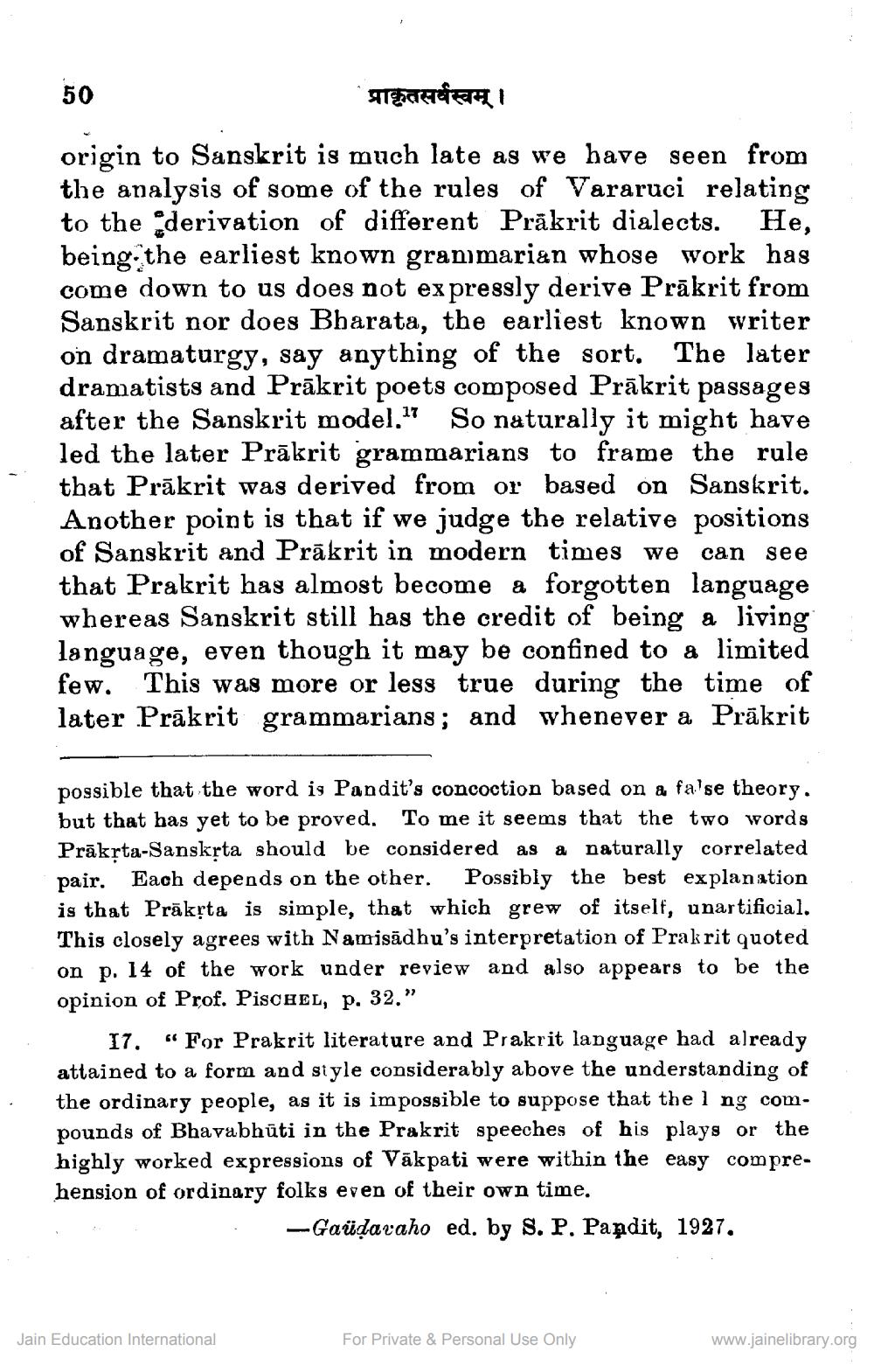________________
50
प्राकृतसर्वस्वम् ।
origin to Sanskrit is much late as we have seen from the analysis of some of the rules of Vararuci relating to the derivation of different Prakrit dialects. He, being the earliest known granimarian whose work has come down to us does not expressly derive Prakrit from Sanskrit nor does Bharata, the earliest known writer on dramaturgy, say anything of the sort. The later dramatists and Prakrit poets composed Prakrit passages after the Sanskrit model." So naturally it might have led the later Prākrit grammarians to frame the rule that Prakrit was derived from or based on Sanskrit. Another point is that if we judge the relative positions of Sanskrit and Prakrit in modern times we can see that Prakrit has almost become a forgotten language whereas Sanskrit still has the credit of being a living language, even though it may be confined to a limited few. This was more or less true during the time of later Prakrit grammarians; and whenever a Prakrit
possible that the word is Pandit's concoction based on a false theory. but that has yet to be proved. To me it seems that the two words Prakṛta-Sanskṛta should be considered as a naturally correlated pair. Each depends on the other. Possibly the best explanation is that Prakṛta is simple, that which grew of itself, unartificial. This closely agrees with Namisadhu's interpretation of Prakrit quoted on p. 14 of the work under review and also appears to be the opinion of Prof. PiscHEL, p. 32."
17. "For Prakrit literature and Prakrit language had already attained to a form and style considerably above the understanding of the ordinary people, as it is impossible to suppose that the 1 ng compounds of Bhavabhuti in the Prakrit speeches of his plays or the highly worked expressions of Vākpati were within the easy comprehension of ordinary folks even of their own time.
-Gaüḍavaho ed. by S. P. Pandit, 1927.
Jain Education International
For Private & Personal Use Only
www.jainelibrary.org




